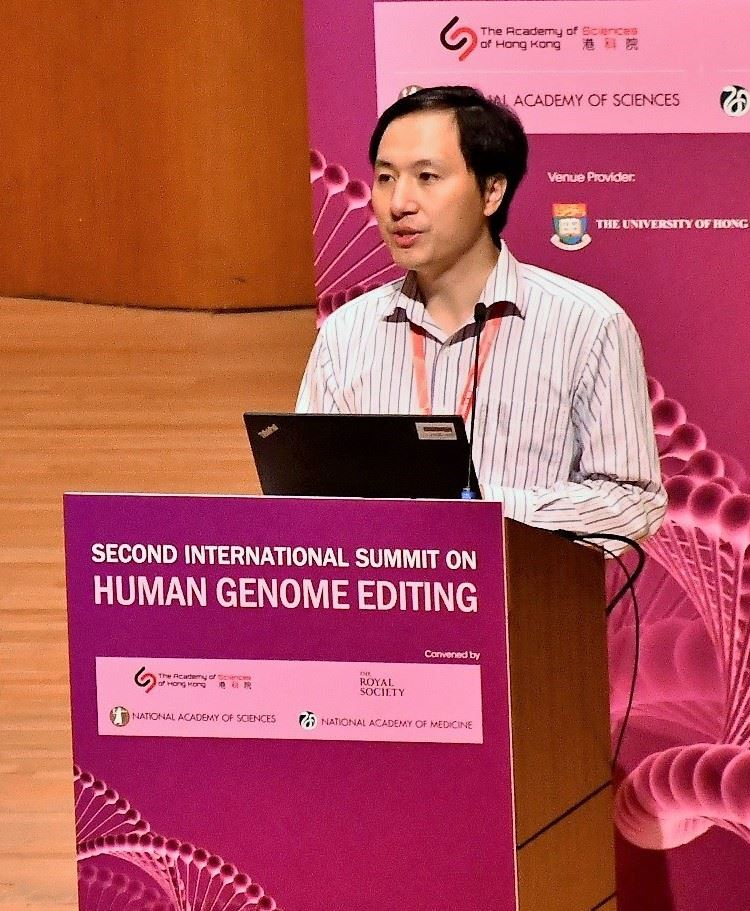Thirteen months ago, Dr. He Jiankui shocked the world when he announced he had genetically engineered a human being - the first scientist anywhere in the world to do so. The response from the scientific community was overwhelmingly negative. On Monday, a court in the southern Chinese city of Shenzhen sentenced Dr. He to three years in prison for "illegal medical practice." The court also fined him three million yuan (around $430,000 U.S.).
Two people who assisted He - Zhang Renli and Qin Jinshou - received jail terms of two years and 18 months, respectively. Both received fines. According to Xinhua, the court said they acted "in the pursuit of personal fame and gain," adding that they "disrupted medical order."

Dr. He Jiankui speaking at the Second International Summit on Human Genome Editing in Kong Kong
Dr. He Jiankui speaking at the Second International Summit on Human Genome Editing in Kong Kong
What was the procedure?
Dr. He said he wanted to create H.I.V. resistant babies. He recruited couples with HIV-positive husbands and uninfected wives. He says he edited the genes in embryos before implanting them into the mother.
Although He originally claimed a set of female twins were successfully created this way. After the verdict, the Chinese media also reported He had also genetically edited a third child, a boy. Not many details have been made public.
The New York Times reported that Dr. He “used in vitro fertilization to create human embryos that were resistant to H.I.V., the virus that causes AIDS." He said he used a gene editing tool Crispr-Cas9, which acts like molecular scissors to cut strands of DNA.
Why did He get jail time?
China has strict regulations concerning genetic editing which states that it can be used in certain research situations, but not in human experiments. The court said Dr. He had failed to alert the relevant authorities of the experiments he was carrying out. Apparently, He didn’t tell doctors who worked with him that they were implanting genetically modified embryos. “They have crossed the bottom line of ethics in scientific research and medical ethics,” the verdict said.
Last year, China's vice minister of science and technology, Xu Nanping, called He's conduct "shocking and unacceptable."